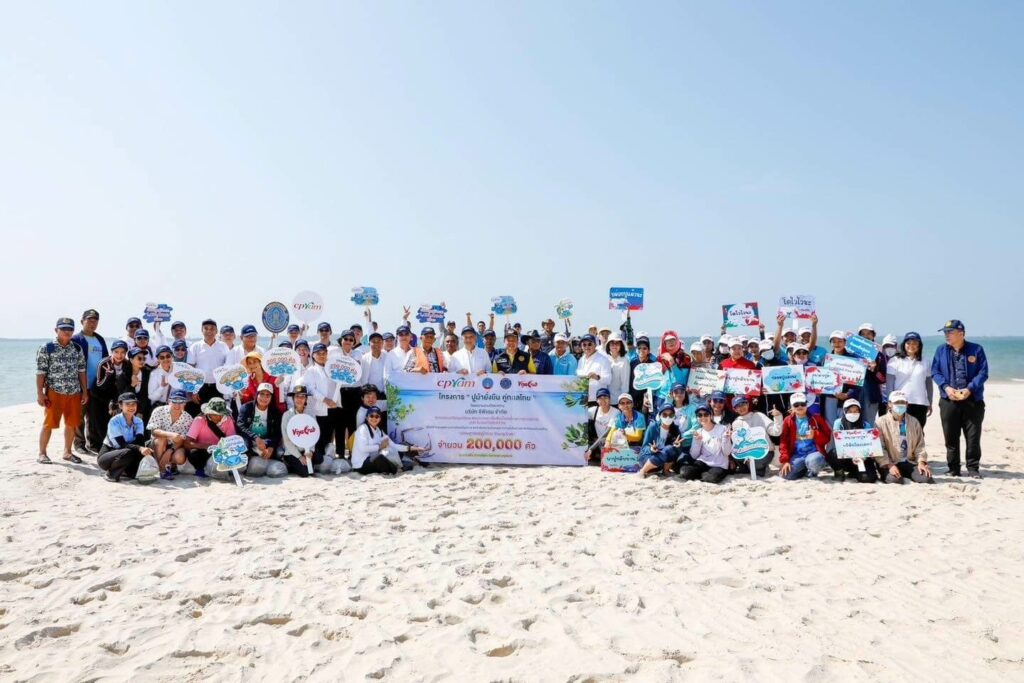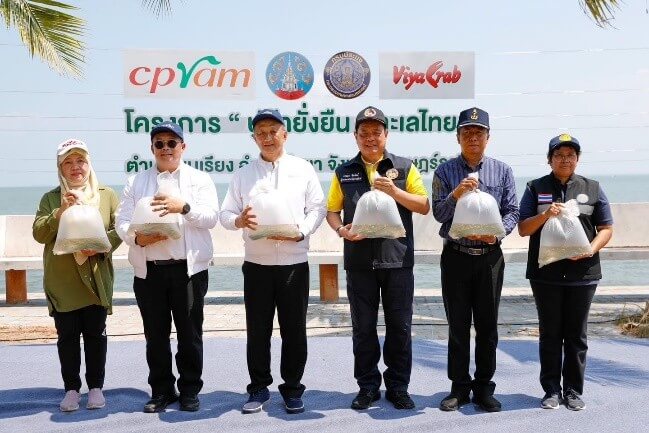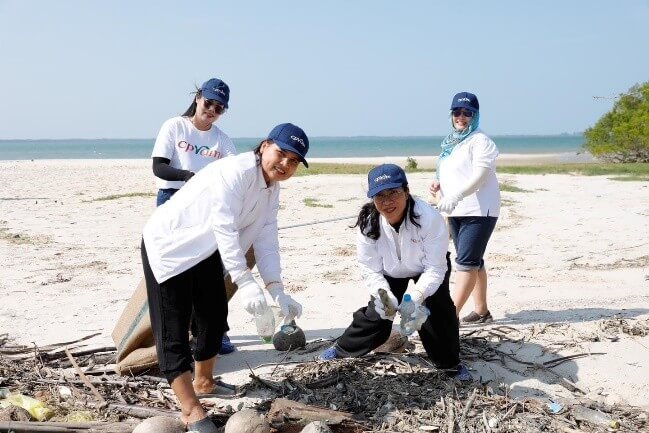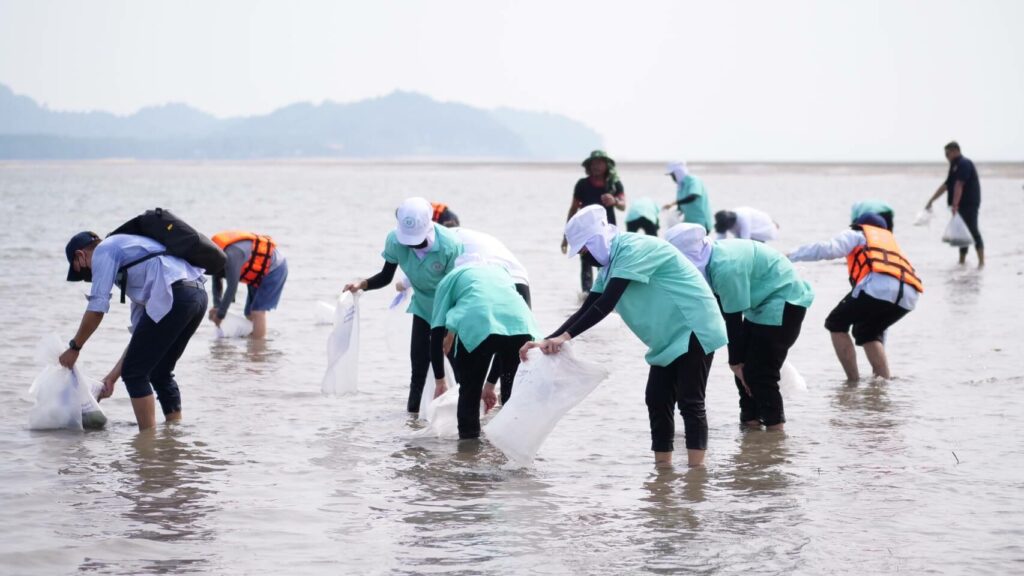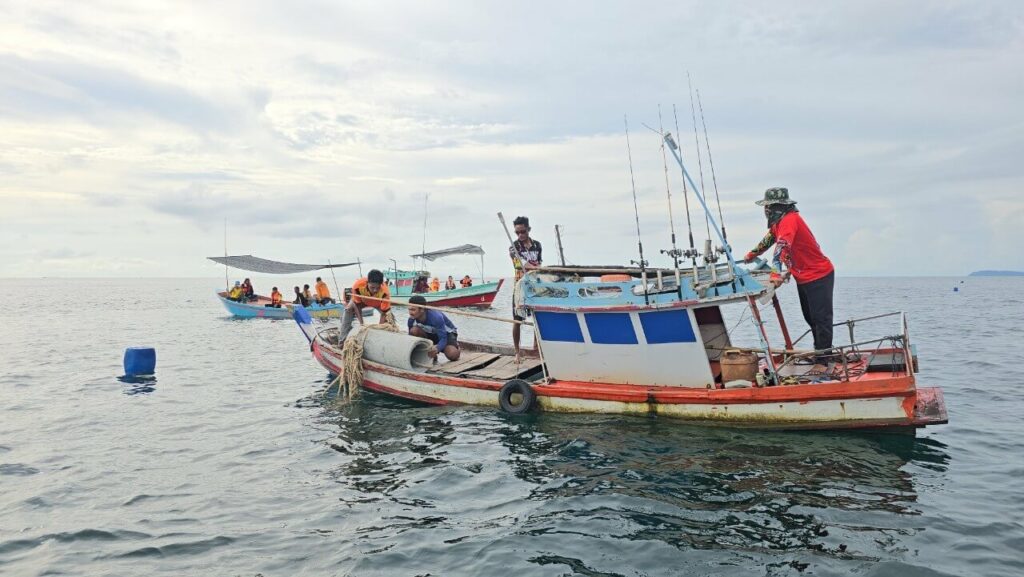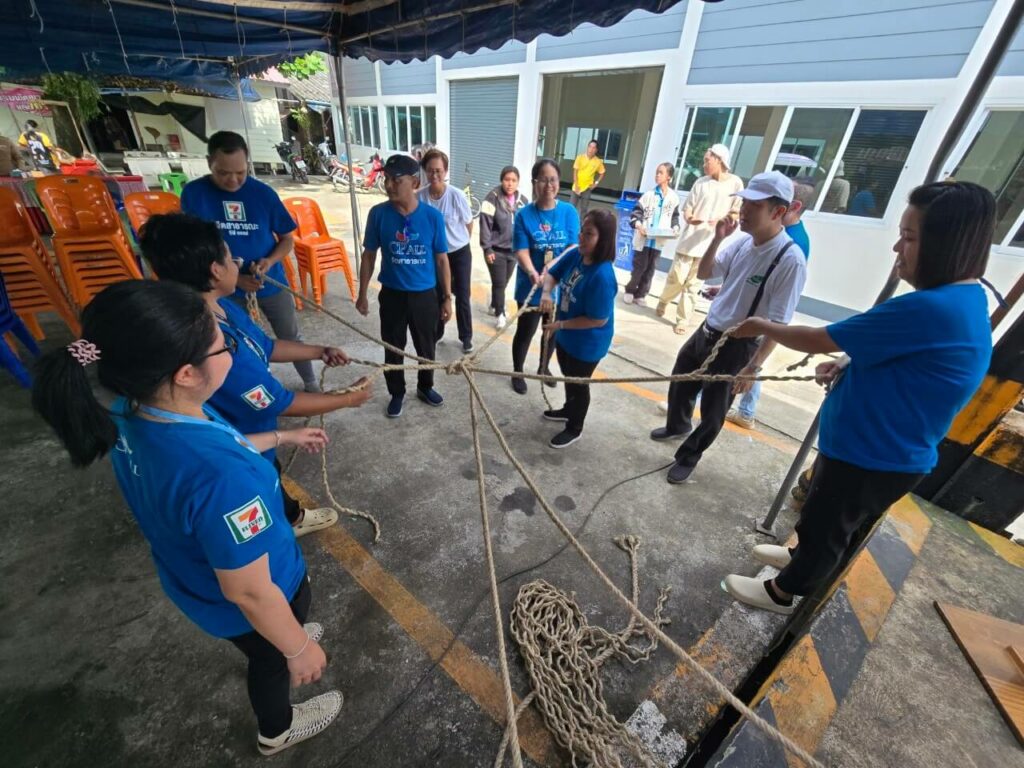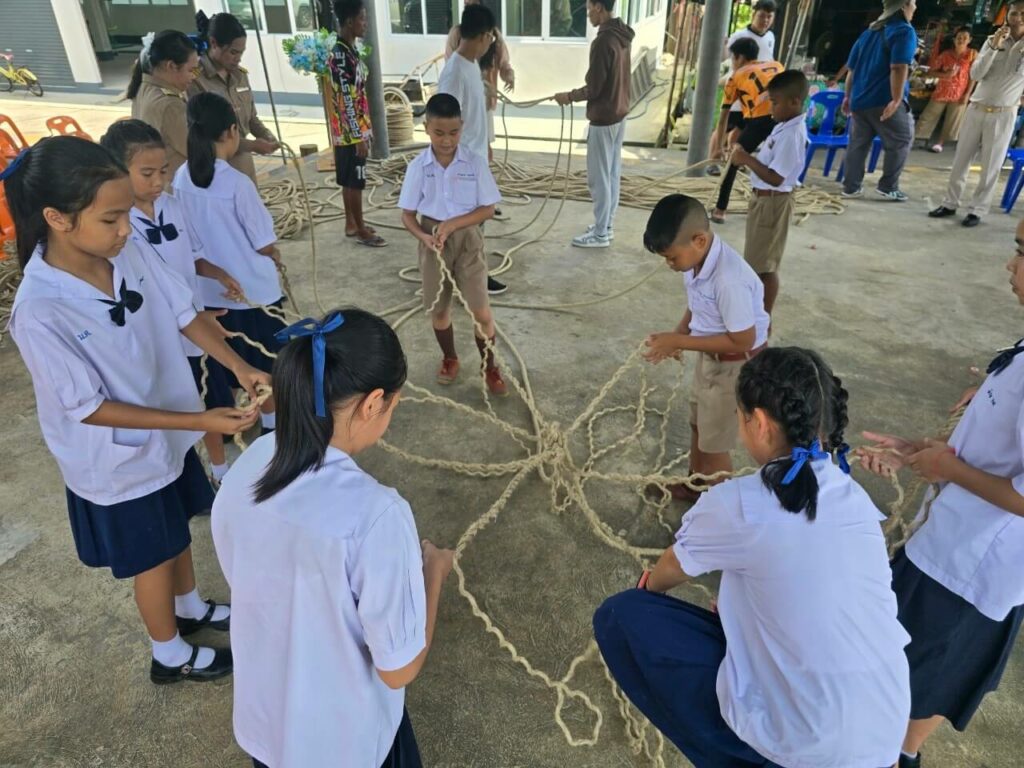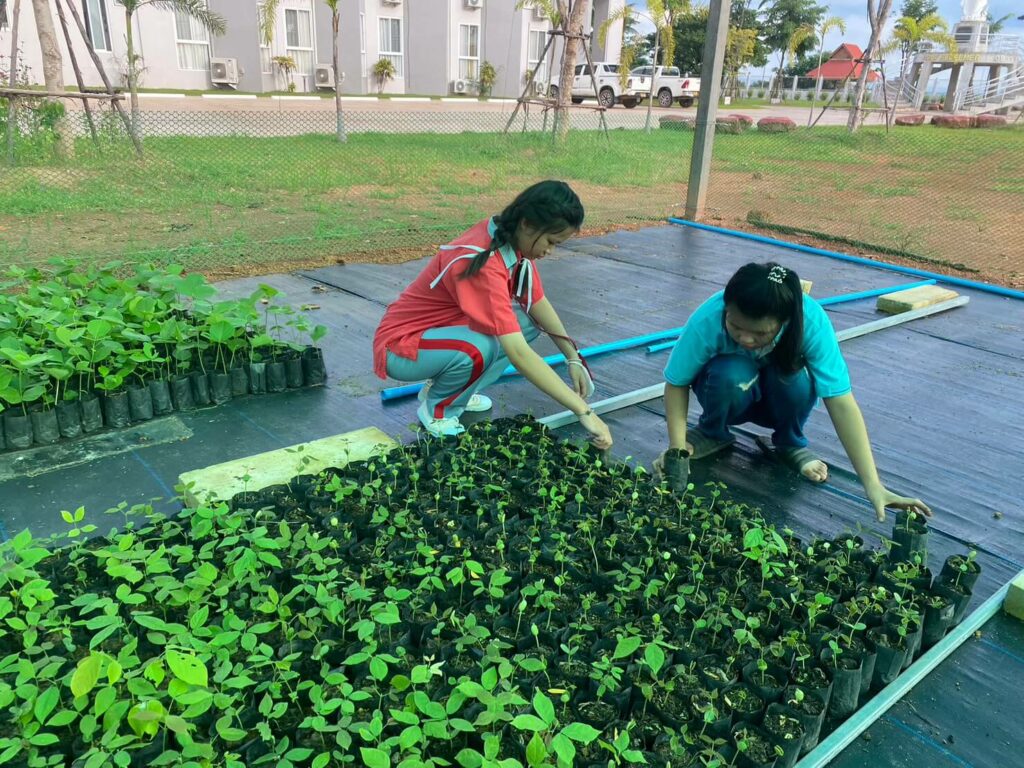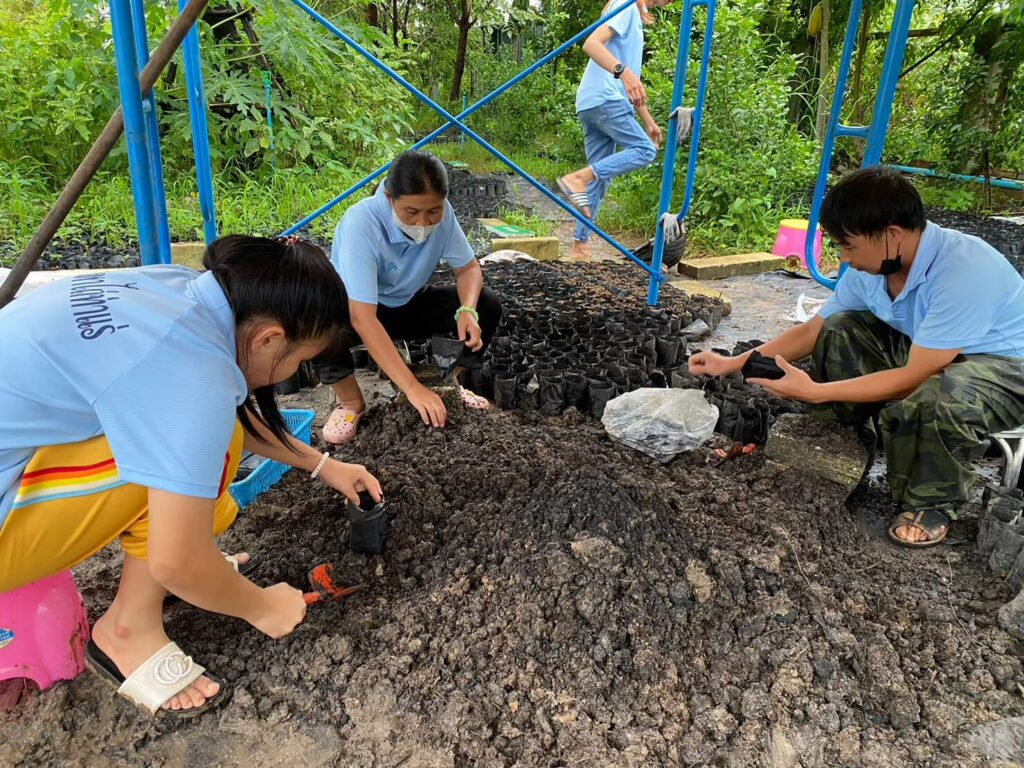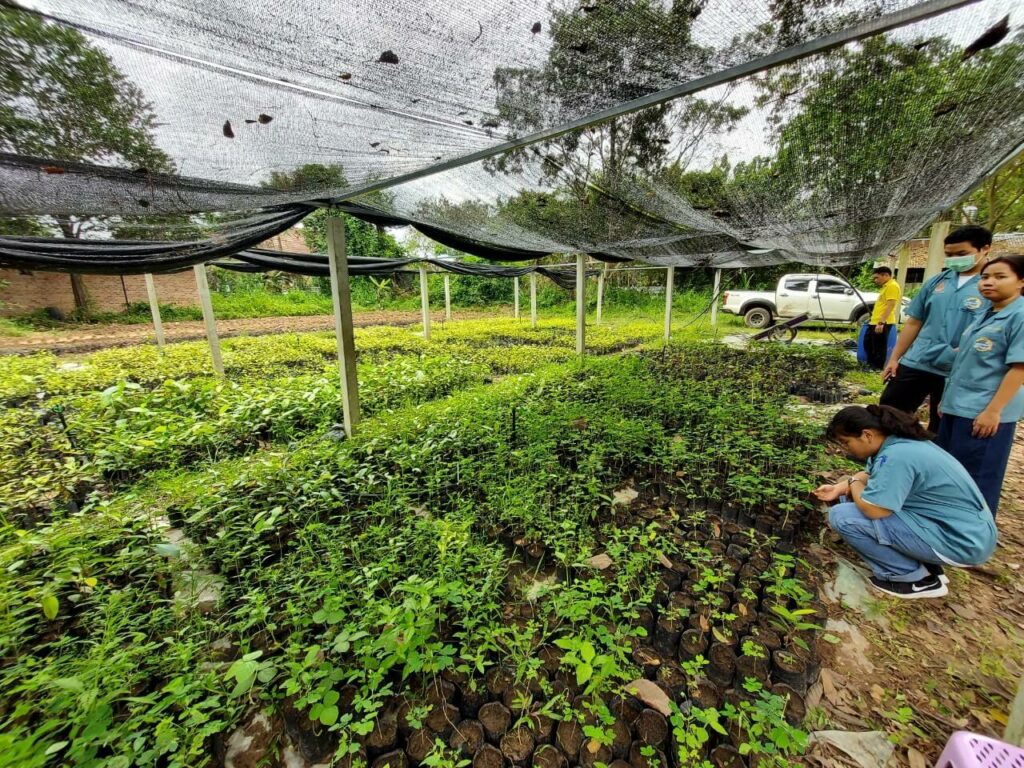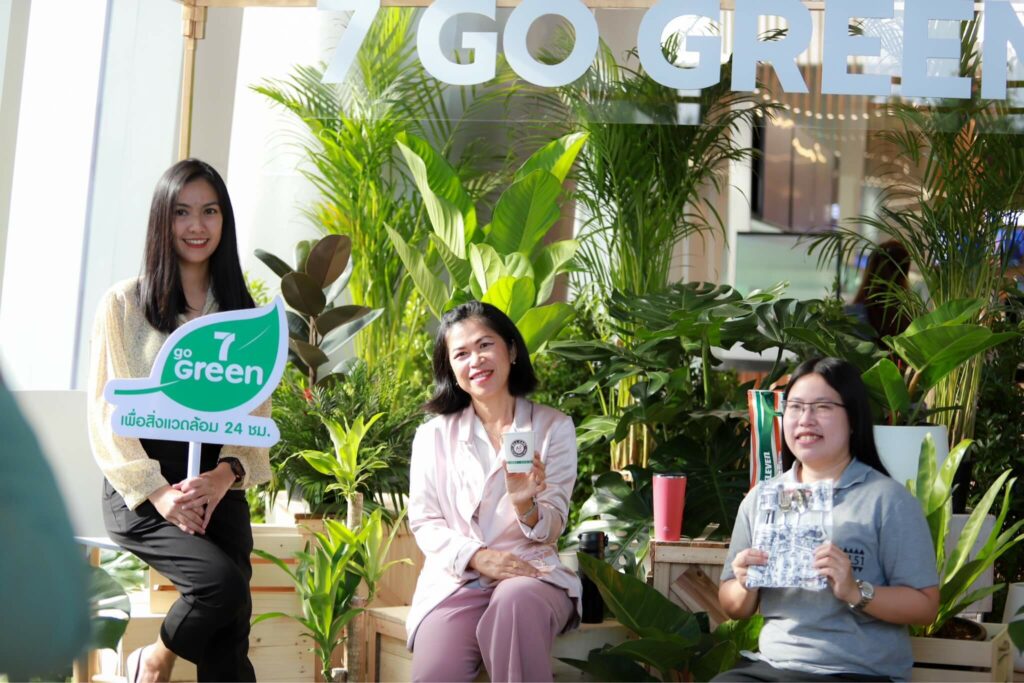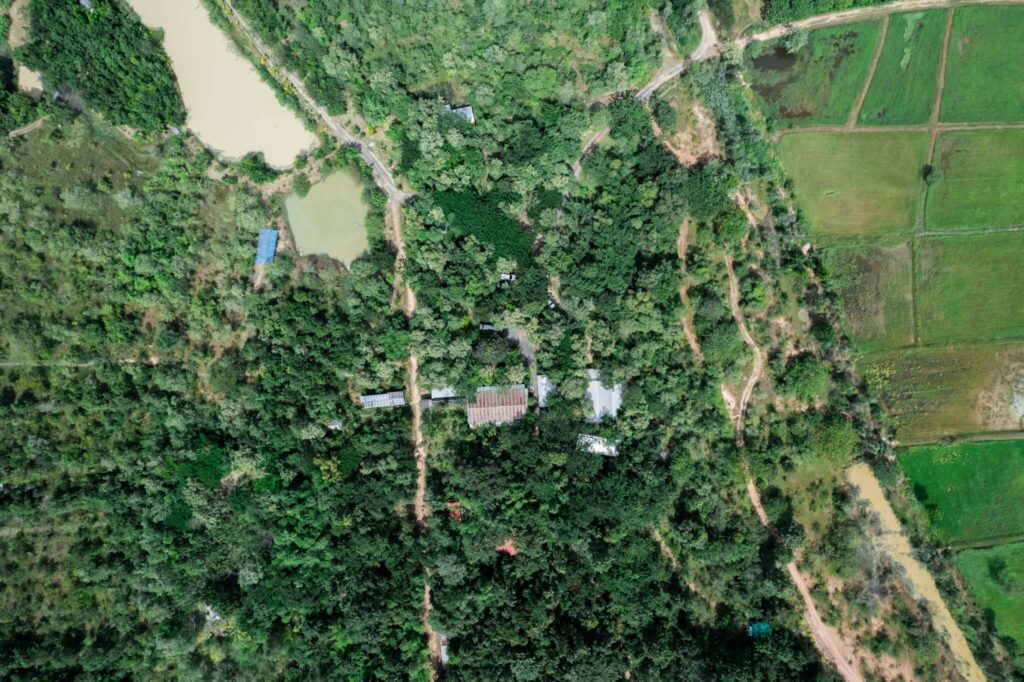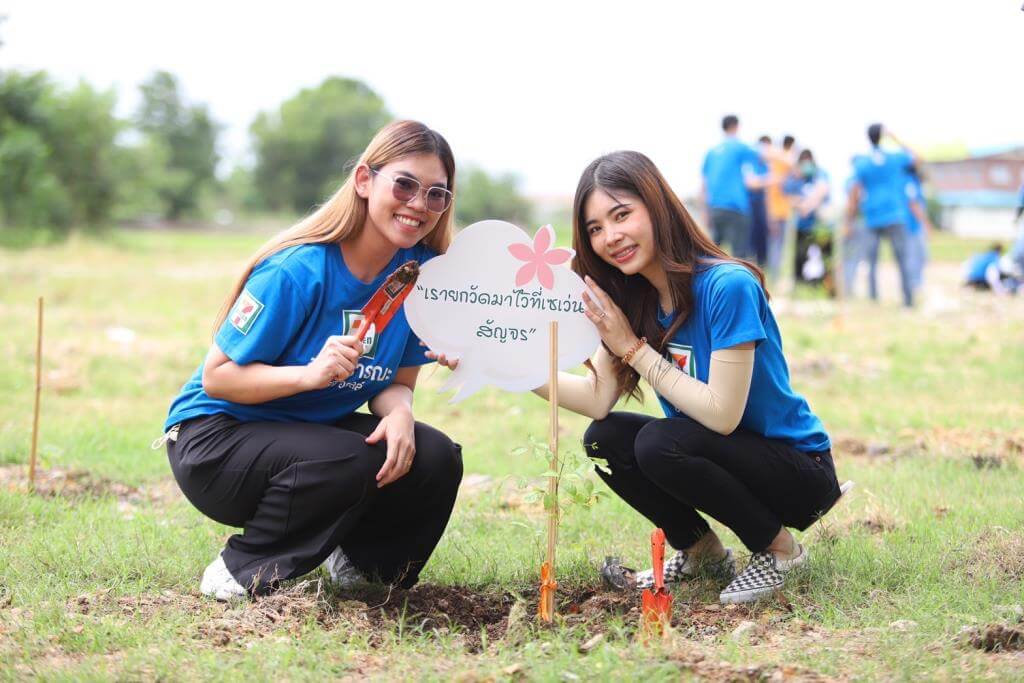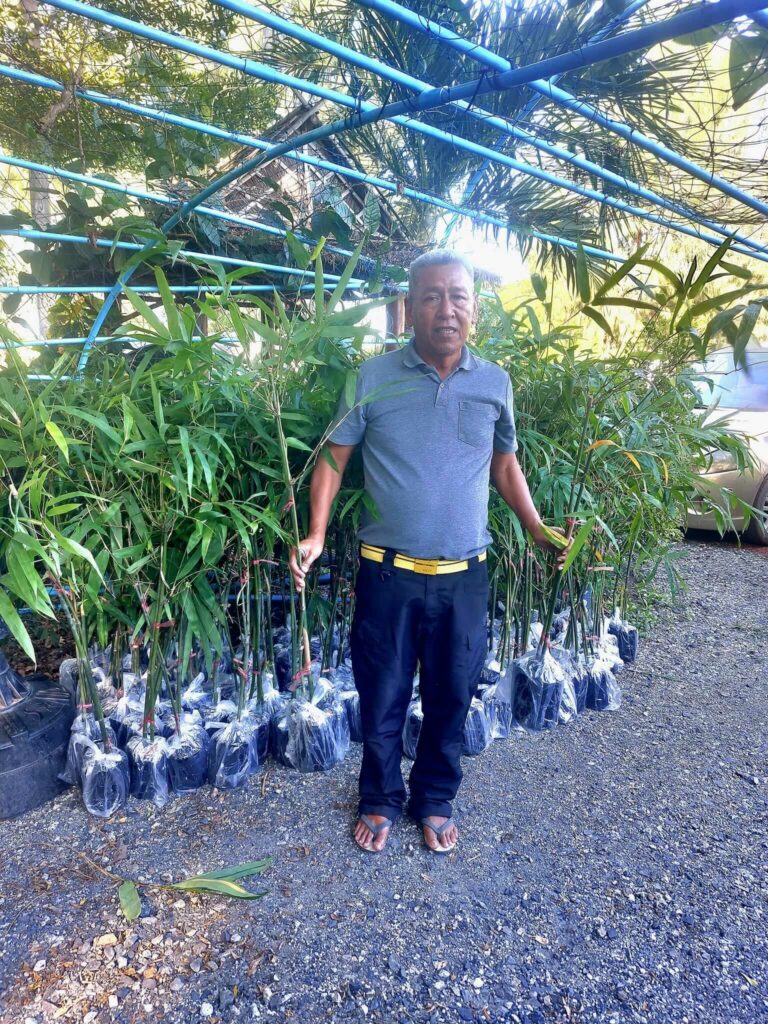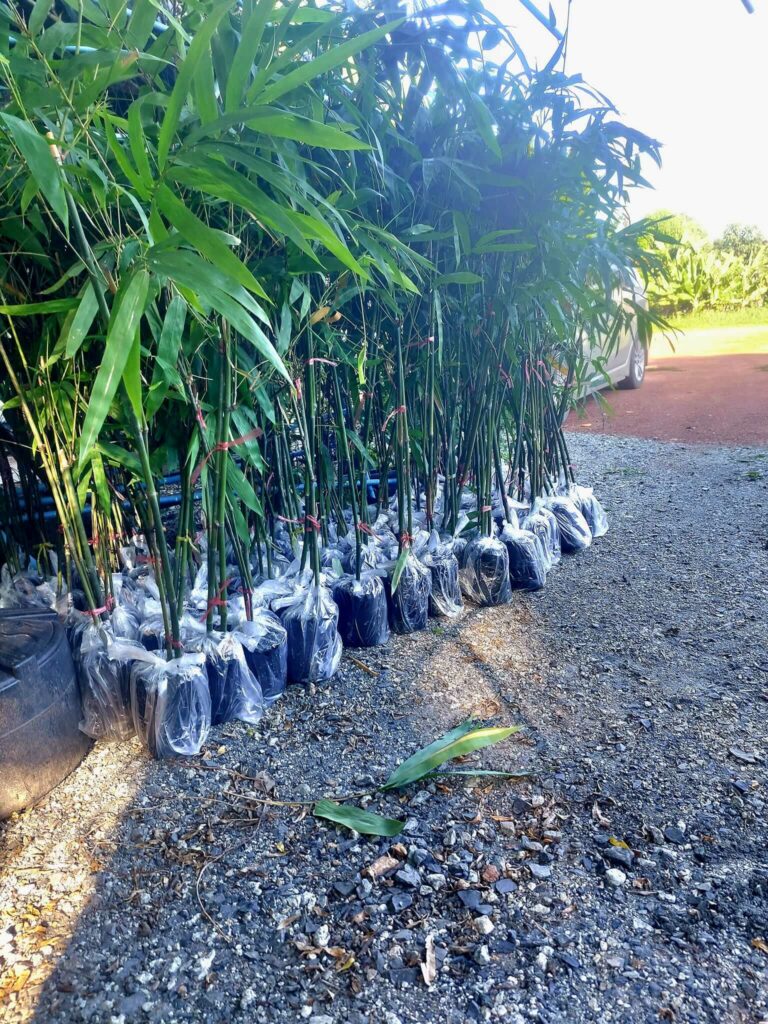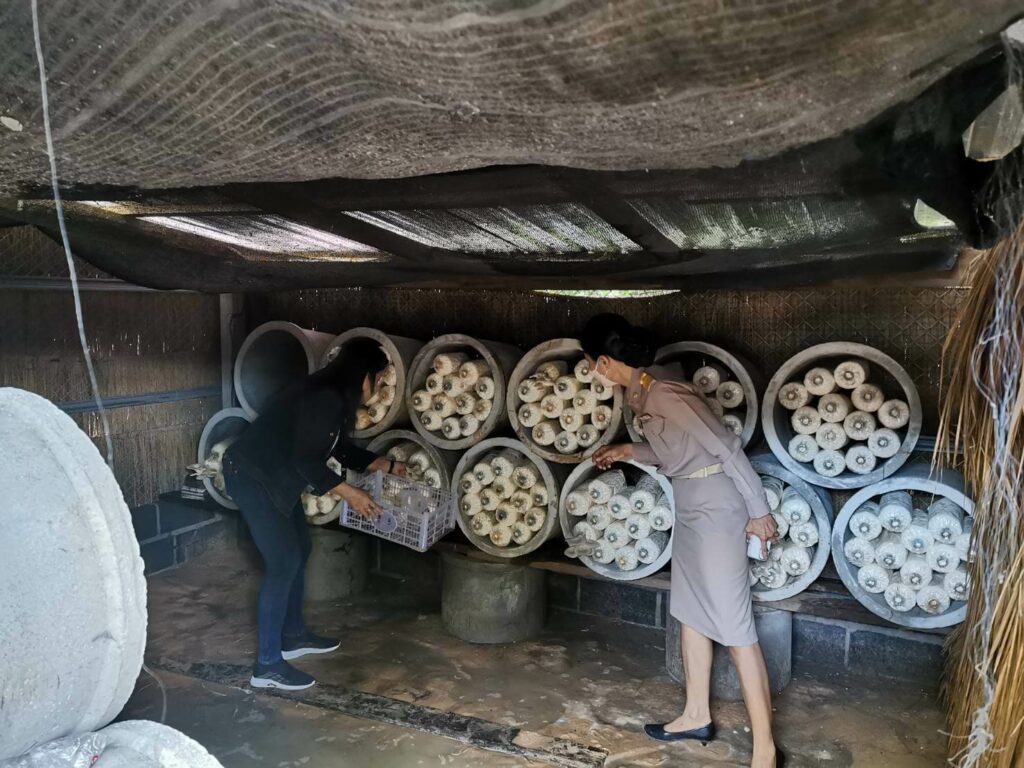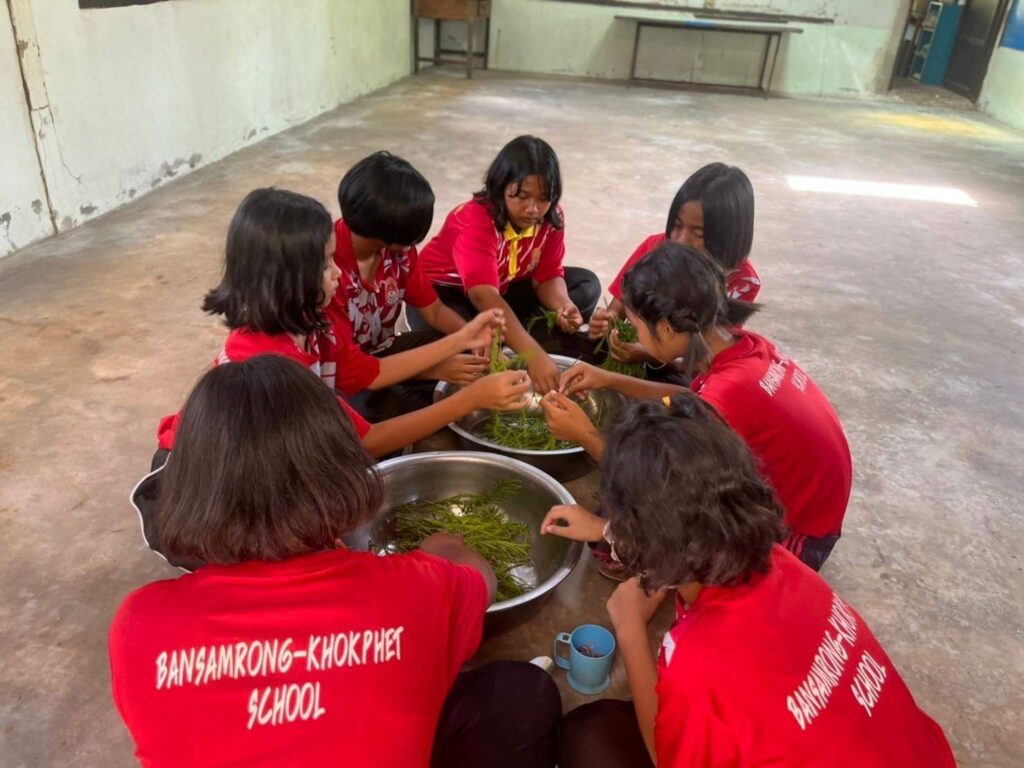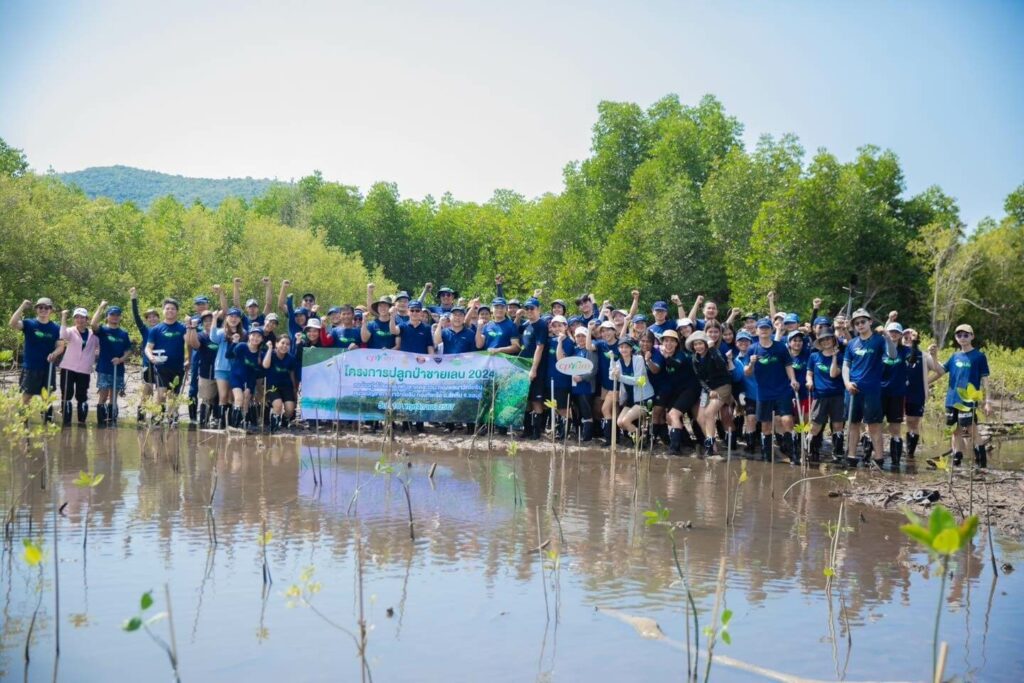Ecosystem and Biodiversity Protection
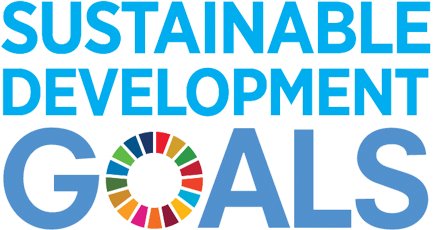
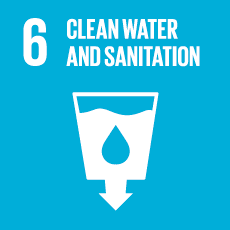

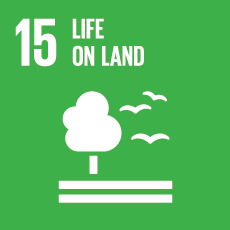
Key Performance in 2024
The assessment and management of biodiversity risks in high-risk areas account
Cumulative planting
Release young blue swimming crabs into the Thai sea, accumulating
Key Progress in 2024

Ecosystem restoration in communities surrounding operating areas

Collaborating with Partners, Business Alliances, and Networks to Reduce Ecological and Biodiversity Impacts Including: Building Homes for Fish, Creating Livelihoods for People Project, Mangrove Reforestation Project

Reforestation for the Future Project

LESS Project (Low Emission Support Scheme)

Stepwise Impact Mitigation Guidelines Project
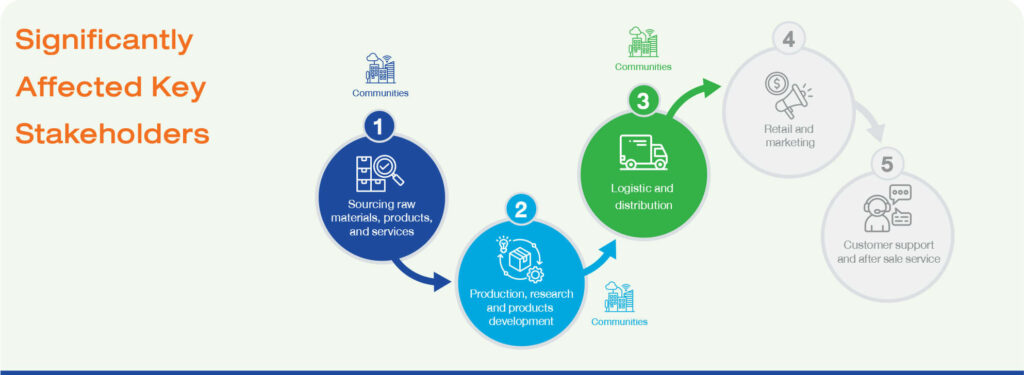
Supporting the SDGs

SDG6 Ensure availability and sustainable management of water and sanitation for all
6.6 Protect and restore water-related ecosystems, including mountains, forests, wetlands, rivers, aquifers and lakes

SDG14 Conserve and sustainably use the oceans, seas and marine resources for sustainable development
14.1 Prevent and significantly reduce marine pollution of all kinds, in particular from land-based activities, including marine debris and nutrient pollution

SDG15 Protect, restore and promote sustainable use of terrestrial ecosystems, sustainably manage forests, combat desertification, and halt and reverse land degradation and halt biodiversity loss
15.1 Ensure the conservation, restoration and sustainable use of terrestrial and inland freshwater ecosystems and their services, in particular forests, wetlands, mountains and drylands, in line with obligations under international agreements
Performance Against Goal
Results of the “Double Materiality Matrix”
Sustainable Dimension
Impact level for application in business operations
Progress against Short-term and Long-Term Goals
All areas of business operations have projects in collaboration with local and national stakeholders or independent third parties they contributed to the reduction of negative impacts on ecosystems or biodiversity
Performance Summary 2024
Number of trees planted to mitigate ecosystem impact
Plant species grown
Cooperation with Various Sectors
| Project Type | Number of seedlings/ trees planted (trees cumulative) | Area (rai cumulative) |
Predict carbon dioxide absorption (tonnes of carbon dioxide equivalent) (In the case of fully grown trees*) |
|---|---|---|---|
| Government sector, Temples, and Schools | 824898 | 8112 | 28488 |
| Nearby communities’ private networks | 45185 | 427 | 1943 |
| Employees | 54288 | 1084 | 2334 |
* Note: Calculated from trees, GHG 1 tCo2e is equivalent to 23.26 5 year old teak trees/ 1 tCo2e.
Forest-related activities for obtaining LESS certification
Community and Social Engagement in Greenhouse Gas Reduction: Support for the Low Emission Support Scheme (LESS: Low Emission Support Scheme)
Risks and Opportunities
Conservation and restoration of nature and global resources have become a major global concern. Main reasons are climate change and pollution, which disrupt ecosystems and natural resources. Additionally, human activities and behaviors continue to cause widespread damage to ecosystems.
The 16th Meeting of the Conference of the Parties to the UN Convention on Biological Diversity (COP16) has addressed key biodiversity issues, including benefit-sharing from biodiversity funds, strengthening the role of Indigenous and local communities, mobilizing resources for biodiversity, and managing global biodiversity tracking (Kunming-Montreal Global Biodiversity Framework: KMGBF). Discussions also covered topics of synthetic biology, invasive alien species, ecologically or biologically significant marine areas, sustainable wildlife management, plant conservation, biodiversity and health, and biodiversity risk assessment.
Efforts are being accelerated through The Biodiversity Plan, which is being translated into National Biodiversity Strategies and Action Plans (NBSAPs) to achieve global biodiversity goals and indicators. Strict policies from both government and business sectors are being implemented to ensure responsible environmental and ecological stewardship across the entire value chain. These measures aim to reduce damage to ecosystems, the environment, natural resources, and agricultural land while protecting human rights related to land ownership, livelihoods, and the well-being of farmers and communities.
An unstable ecosystem can directly impact business operations, leading to a decline in the quantity and quality of agricultural and natural products, which may result in raw material shortages and resource scarcity—ultimately affecting production processes and supply chain sustainability.
The long-term biodiversity and no net deforestation goals includes implementing measures to protect and restore biodiversity across a company’s value chain, are aligned with the company’s policies. The programs also support the development of cross-sector partnerships to collectively safeguard and rehabilitate both terrestrial and aquatic ecosystems, minimizing biodiversity impacts in accordance with corporate commitments.
Management Approach
The Company has established a risk and impact assessment process for business activities on biodiversity (Biodiversity Exposure & Assessment) under the Biodiversity and Natural Resources Policy. This assessment covers the Company’s operational areas, first-tier suppliers, and business alliances throughout the value chain. The objective is to prevent business activities from impacting conservation or protected areas, as defined and regulated by the International Union for Conservation of Nature (IUCN) and UNESCO World Heritage Sites. The Company implements a Mitigation Hierarchy approach to manage and mitigate negative impacts from business operations that could result in biodiversity loss (No Net Loss: NNL). Additionally, the Company focuses on collaborating with partner networks and stakeholders to undertake restoration and conservation projects that drive positive ecological change, both terrestrial and aquatic with the objective to create a Net Positive Impact (NPI) and restore balance and biodiversity to ecosystems.
Biodiversity Risks and Impacts Assessment
The Company is committed to biodiversity conservation under biodiversity and natural resource policy, complying with local regulations, and assessing environmental risks and impacts on terrestrial and aquatic ecosystems. This includes biodiversity considerations across all operational areas, such as manufacturing sites, distribution centers, and retail locations, covering 100% of these areas. Additionally, the Company extends this evaluation to key tier 1 suppliers’ operational area, covering 100%. The Company integrates information technology and biodiversity databases into risk assessments and impact evaluations. Preventative and mitigation plans are developed to minimize negative effects on ecosystems. The Company collaborates with stakeholders to continuously refine the development approach, ensuring that business activities and suppliers do not take place in protected areas or negatively impact biodiversity, both on land and in water.
Biodiversity Risk and Impact Assessment Procedures
| 1. Determine the assessment scope and study area |
|
| 2. The screening and initial assessment |
|
| 3. Select complex areas to conduct an in-depth 3-prongs assessment |
|
| 4. Develop an impact prevention plan and implement the plan accordingly |
|
| 5. Build engagement and continuously improve development guidelines |
|
Biodiversity Risk Assessment Results
The Company considers location-specificity based on business operations, covering both areas within the Company’s operational sites, surrounding areas within a 0 to 5 kilometer radius (adjacent areas), upstream activities of manufacturing plants, and downstream activities of distribution centers in delivering products to stores and consumers. This includes Makro Wholesale Stores, Lotus’s Shopping Centers, and Distribution Centers located outside the Community areas, totaling 616 sites of own operations and XXX sites of Tier 1 agricultural supplier sites. At the same time, the Company also considers conservation areas, protected areas, and key biodiversity areas, as well as important natural areas, such as forests, major water sources, and watersheds, identified through the risk assessment process using biodiversity assessment tools (IBAT/BESTCAT).
| Biodiversity Exposure & Assessment in 2024 | |||
|---|---|---|---|
| Number of sites | Number of sites | Area (rai) | Area (Hectare) |
| All operating areas (Overall) | 616 | 8645.20 | 1383.23 |
| Assessment: Operating areas subjected to biodiversity impact assessments (within the past 5 years) | 616 | 8645.20 | 1383.23 |
| Exposure: Operating areas with high potential for biodiversity impact (within the past 5 years) | 58 | 754.78 | 120.77 |
| Management Plans: Operating areas affecting biodiversity with implementation biodiversity impact manag | 58 | 754.78 | 120.77 |
Biodiversity risk identification
The Company screens and assesses initial risk issues using location-specific approach based on assessment results from the BESTCAT. These results were analyzed alongside factors relevant to the food retail industry, referencing the Industry materiality matrix of the WWF Biodiversity Risk Filter referring from the World Wide Fund for Nature (WWF) guidelines. This assessment covers the factors both the Company’s potential impacts on biodiversity (Biodiversity Impacts) and the natural factors that may affect business operations or production (Ecosystem Service Dependencies). The Company has prioritized existing critical risk factors likely to pose future impact and classified respective factors into 3 categories as follows:
Global Species Richness Impact
Threatened Species Impact
Soil and Water Dependency
The Company reviews risk issues based on context and related factors to determine critical risk issues and subsequently establish risk management plans and operational measures according to the Mitigation Hierarchy, covering 100% of the 58 operational areas where critical risk issues have been detected.
Hierarchical Impact Mitigation Approach
From the risk assessment process, which evaluates both direct and indirect risks, including significant positive and negative impacts on biodiversity, such as pest invasions, the decline of plant and animal species, migration, and ecosystem changes, the Company has identified key impact issues. These include the impact on threatened species in operational areas in the Northern Region of Thailand, such as Chiang Mai and Phitsanulok provinces.
The Company has established measures covering Priority Areas throughout the operations and business activities, prioritized based on risk assessments and biodiversity impact evaluations. These measures align with the Company’s commitment under Biodiversity and Natural Resources Policy.
The Company respects and complies with local regulations and laws regarding biodiversity conservation in the operational areas. CP ALL strictly reviews operational measures and establishes a Mitigation Hierarchy approach, ranging from avoidance to restoration. Additionally, the Company conducts studies on plant and animal species in areas identified as sensitive to mitigate the long-term impacts of business operations on ecosystems and biodiversity.
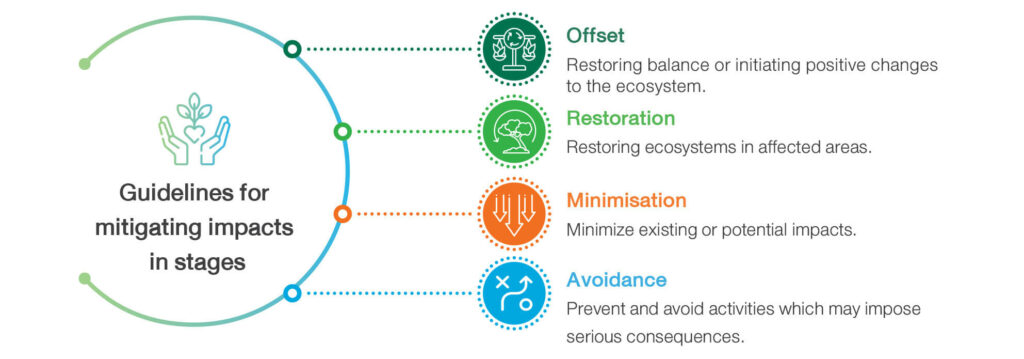
Guidelines for mitigating impacts in stages
| Offset | |
|---|---|
| Restoring balance or initiating positive changes to the ecosystem |
|
| Restoration | |
| Restoring ecosystems in affected areas |
|
| Minimisation | |
| Minimize existing or potential impacts |
|
| Avoidance | |
| Prevent and avoid activities which may impose serious consequences |
|
Cooperation with stakeholders to reduce ecosystem impact
The Company cooperates with stakeholders including suppliers, business alliances, government agencies, local communities, and Company network partners to conduct businesses with responsibility towards ecosystems and biological diversity in communities surrounding operating areas. This approach preserves the ecosystem integrity.
5-Year Reforestation and Future Growth Plan (2021-2025)
| “Target: Planting 1,000,000 Trees by 2025.” | |||||
| 2021 | 2022 | 2023 | 2024 | 2025 | |
| Trees Planted per Year | 201000 | 156800 | 180000 | 200000 | 241213 |
| Cumulative Trees Planted | 201000 | 357800 | 537800 | 737800 | 1000000 |
| Nursery Communities | 1 | 4 | 19 | 19 | |
| Participating Households | 200 | 800 | 3800 | 3800 | |
The company has set a goal to plant 1,000,000 trees by 2025 and has implemented a project to support tree planting for communities. The working group on tree planting for sustainable communities is responsible for forest restoration and monitoring the project under the framework of 4 aspects as follows:
Stakeholder engagement frameworks to reduce ecosystem impact
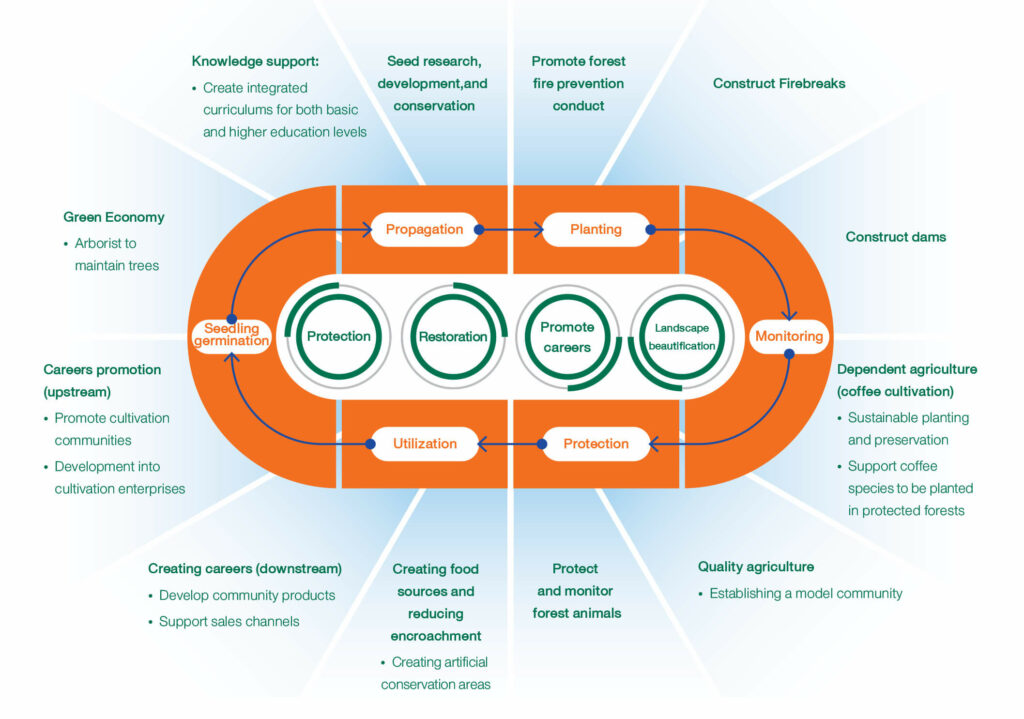
Key Projects in 2024
1. Ecosystem restoration in communities surrounding operating areas project - Year 4
The Company encourages employees to volunteer and realize the importance of preserving ecosystems and the environment surrounding operating areas, including 7-Eleven stores, Makro and Lotus’s distribution centers, educational institution areas, distribution centers and office buildings throughout the country. This is achieved through facilitating participation with communities, government agencies, and local administrations in tree planning activities and community tree propagation continuously every year to increase green space, create quality environments and restore ecosystems. Over 924,371 trees have been planted to date.

7-Eleven store areas, distribution centers and offices

Makro and Lotus’s distribution center areas and office buildings nationwide

Educational institution areas nationwide

CPRAM factory areas and office buildings
2. Collaboration with suppliers, business alliances, and network organizations to reduce impacts on ecosystems and biodiversity
Reducing Impacts on Terrestrial Ecosystems
Ongoing Project: “Next Gen New World” - Year 18
Lotus’s, in collaboration with the Khao Yai National Park Protection Foundation, continues the Next Gen New World project for the 18th consecutive year. This initiative aims to raise awareness among youth about the importance of natural resource conservation and environmental sustainability. The project seeks to preserve forests and ecosystems for future generations. As part of this effort, reforestation activities are conducted in national parks across Thailand, including:
Impact and Benefits

Youth participated in the training

covering an area

Provided financial support for projects in 2024
(Khao Yai National Park Protection
Foundation)
Reducing Impacts on Aquatic Ecosystems
Ongoing Project: “Sustainable Blue Crab for Thai Seas” - Year 13
CPRAM Company Limited is implements the ‘Sustainable Blue Crab for Thai Seas’ Project to conserve blue crab populations in the Gulf of Thailand and Andaman Sea, aiming to preserve natural resources and maintain the balance of marine ecosystems. The project receives collaboration from stakeholders across the supply chain; from upstream to downstream, including fishermen (blue crab meat suppliers), CPRAM Company Limited (food manufacturer), and consumers, with support from Provincial Fisheries Offices and the Coastal Aquaculture Research and Development Division, Region 3, which provides technical and academic cooperation. This initiative aims to ensure effective conservation, protection, and development of blue crab fisheries in Thai ocean. Additionally, the project encourages employee participation in environmental conservation activities, such as beach cleanup and waste segregation at juvenile blue crab release sites, to help sustain aquatic animals and marine ecosystems.
Impact and Benefits

Released young blue crabs back into Thai seas

Cumulatively released
Mangrove Reforestation Project
The Company, in collaboration with the Mahachai Distribution Center, Surat Thani Distribution Center, and local communities, is working to conserve and restore coastal ecosystems in mangrove forest areas, which serve as breeding, nursery, and habitat areas for marine life. In 2024, the project planted 400 trees.
Lotus’s Collaborates with Partners on Mangrove Reforestation at Khlong Ban Amphur
Lotus’s, in collaboration with the Department of Marine and Coastal Resources, Region 2, participated in a mangrove reforestation activity at Khlong Ban Amphur, held at Baan Phaen Resort, Na Jomtien Subdistrict, Sattahip District, Chonburi Province. The initiative involved cooperation between government agencies, private sector organizations, students, coastal communities, and Marine Rangers. Together, they planted mangroves in the Khlong Ban Amphur area to support conservation and restoration efforts, enhance biodiversity, and maintain the ecological balance of the region.
Building Homes for Fish, Creating Livelihoods for People Project
Khlong Yai District in Trat Province is rich in natural resources, serving as a habitat, refuge, spawning ground, and nursery for marine life. CP ALL, in collaboration with the Mangrove Forest Resources Research and Development Institute and partner organizations, including local artisanal fishing groups from Khlong Yai Municipality and the Trat Provincial Children’s and Youth Council, organized an initiative to create fish habitats (artificial reefs) using natural fiber ropes to reduce microplastic pollution in marine ecosystems. Additionally, the project included waste collection along wave barriers, fostering community unity and passing on marine conservation knowledge from one generation to the next. The initiative has also been expanded to include activities with local fishing communities in Cheklak and Tanuk, Trat Province.
“No Catch - No Buy - No Sell” Juvenile Marine Life Conservation Project
The conservation of juvenile marine life, which forms a crucial foundation in the ocean’s food chain, is essential for sustainable fisheries. Makro and Lotus’s have jointly announced a policy to communicate and implement various measures with relevant partners, including verifying sources, setting and monitoring size and species standards, regulating fishing equipment and methods, and providing awareness training for producers, partners, and fishing groups throughout the supply chain. This initiative aims to drive behavioral change in juvenile marine life harvesting through supply and demand mechanisms, promoting sustainable fishing practices.
3. Reforestation for the Future (Under CP ALL’s Initiative)
As part of a collaborative framework to reduce impacts on ecosystems and biodiversity, CP ALL works with communities, schools, and temples across various regions to promote environmental conservation. In 2024, the Company organized a Reforestation for the Future networking seminar and distributed 200,000 tree seedlings to employees and communities across 197 communities in 32 provinces, covering an area of 1,000 rais. Examples of key projects include:
Power of Community (Home)
- Forest Care
- Environmental Care
- Organic Farming
- Product Development
Power of Faith (Temple)
- Create an idea capital
- Create a resource capital
- Create a life capital
Power of Knowledge (School)
- Seedlings Without Buckets
- Forestry School
- Sustainable Agriculture Promotion
- Curriculum Development
- Community Learning Center
Ongoing Project: “Upstream Community Reforestation Network”– Year 4
The Company, in collaboration with nine community groups and upstream community partners, promotes nature and environmental conservation through support for tree nurseries, funding for greenhouse construction, and the maintenance of tree seedlings. Seedlings grown within the Reforestation Project are distributed through the Forest Surrounding Temples initiative for planting at homes, temples, schools, and communities. Additionally, the “WE GROW for ALL” initiative encourages employees to participate in planting perennial trees.
Impact and Benefits

Seedlings propagated

Covering an area

Community participated in the project

Reduction of greenhouse gas emissions

Financial support of
Ongoing Project: “WE GROW for ALL”– Year 4
CP ALL encourages employees to engage in volunteer activities and recognize the importance of ecosystem and environmental conservation by organizing annual tree planting activities in various locations, including 7-Eleven stores, Makro sales centers, Lotus, educational institutions, distribution centers, and office buildings nationwide. The initiative collaborates with communities, government agencies, and local administrative organizations to expand green spaces, create a healthier environment, and restore ecosystems.
Additionally, the project provides tree seedlings and supports the “Showcase Our Trees” activity, where employees plant perennial trees in their private spaces and record their planting progress through the “We Grow” application. In 2024, a total of 4,635 seedlings were distributed to 1,545 employees.
Ongoing Project: “Forest Surrounding Temples” – Year 4
CP ALL distributes tree seedlings from the Upstream Community Reforestation Project to temples and local communities to help restore ecosystems and biodiversity. The initiative aims to promote reforestation, expand green spaces, and foster environmental awareness for long-term sustainability, while also encouraging efficient resource management.
Impact and Benefits

Seedlings distributed

Temples participated in the project

Community members participated

Financial support

Estimated greenhouse gas absorption
Ongoing Project: Bamboo Project – Year 4
The Company, in collaboration with schools participating in the “CONNEXT ED” Educational Program, under the Sustainable Bamboo Network, provides schools with income opportunities by educating students on the benefits of bamboo, propagation techniques, planting, maintenance, utilization, and processing, while promoting environmental conservation, water, and soil resource management. This initiative is delivered through online seminars and includes the distribution of bamboo seedlings to partner schools.
Impact and Benefits

Schools and communities participated in the project

Project participants
(172 students, 10 teachers, and 14,757 community members)

Bamboo seedlings provided

Estimated greenhouse gas absorption

Financial support
Ongoing Project: “Forestry School Concept”– Year 3
The Company is expanding the Bamboo Project initiative into the Reforestation for the Future project, transferring environmental knowledge to schools. This involves integrating tree planting education into various subject areas within the core curriculum, including:
| Learning about tree seedling propagation | Understanding different types and classifications of trees | Nurturing and caring for seedlings | Planting |
|---|---|---|---|
| Tree maintenance and utilization | Reporting and recording tree growth data | Promoting tree planting and forest conservation | |
Impact and Benefits

Schools and educational institutions participated in the project

Project participants
(2,142 students, 148 teachers,
and 7,019 community members)

Estimated greenhouse gas absorption
4. Tree Planting by Companies within CP Group
Ongoing Project: CPRAM Green Life #100,000 Saplings to 100,000 Trees – Year 4
CPRAM distributes perennial tree saplings to employees, communities, and interested individuals nationwide, encouraging them to plant trees in residential areas and public spaces within their hometowns. This initiative aims to expand green spaces, restore and maintain ecosystem balance, and increase tree coverage to absorb carbon dioxide. In 2024, a total of 1,100 saplings were distributed, bringing the cumulative total to over 80,300 saplings.
Ongoing Project: CPRAM Green Life #Planting for a Sustainable World – Year 4
CPRAM continues reforestation efforts by planting both terrestrial and mangrove forests across provinces where CPRAM facilities are located, including seven sites nationwide and neighboring provinces. The initiative aims to expand green spaces, restore environmental balance, and contribute to carbon dioxide absorption. In 2024, a total of 11,292 trees were planted, covering an area of over 12,800 square meters (more than 8 rais).
Related Policy and Guideline
| Biodiversity and Natural Resource Policy | Download |

